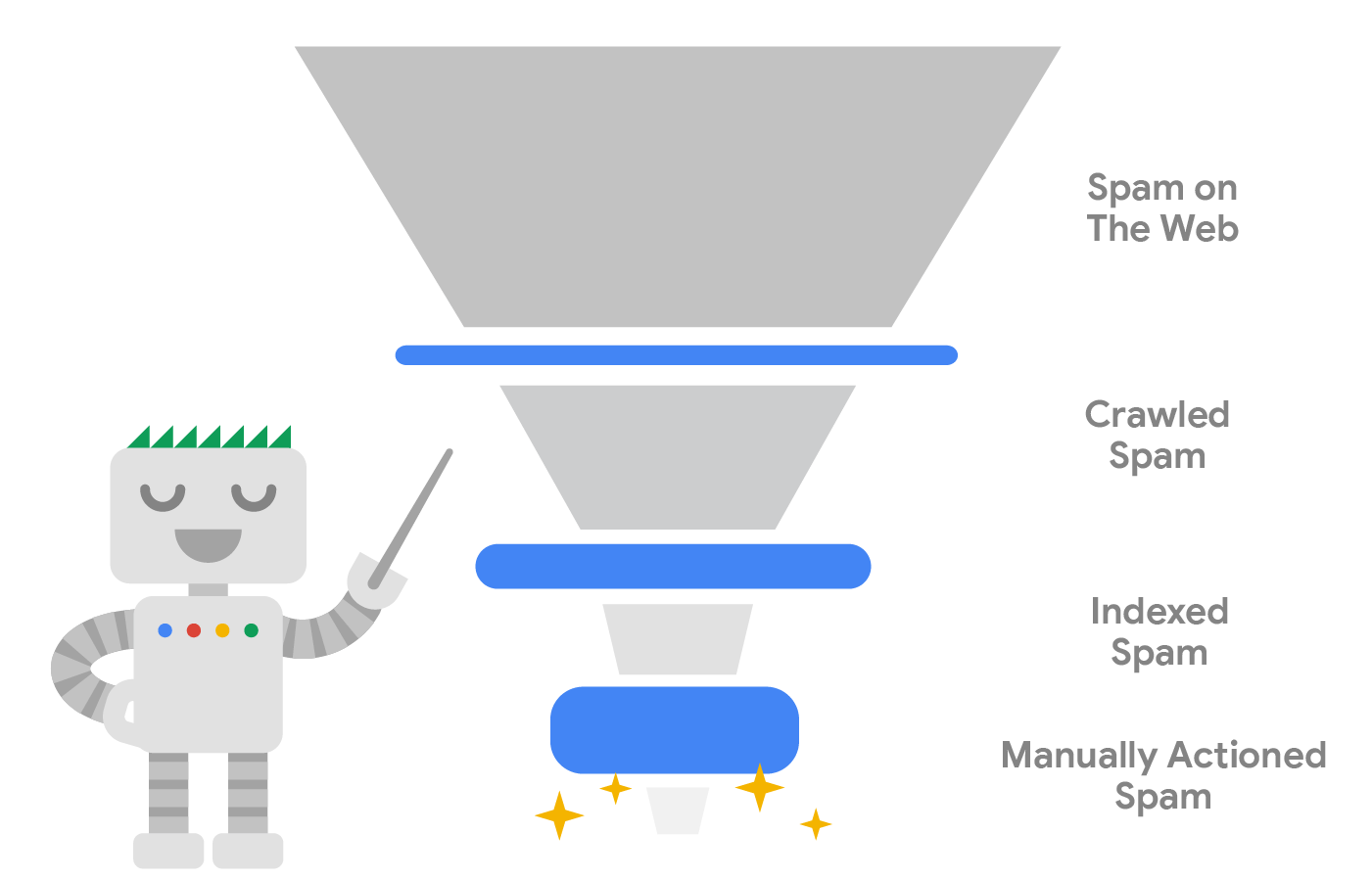Google webspam report: 60% increase in spam detection
According to Google’s 2020 webspam report, the business spotted 40 billion spam pages each day, up from 25 billion in 2019.
In 2020, Google will detect 40 billion spam pages every day, an increase of 60% over the previous year. Hacked sites, falsely produced sites, and other forms of webspam, frauds, and fraud were among the 40 billion pages. Google has released its new webspam report for 2020, which you can find here.
AI helps.
Google claims that advances in AI have reduced the number of sites with auto-generated and scraped content that appears in its search results “by more than 80% compared to a couple of years ago,” according to the company. While hacked spam was still “rampant in 2020,” Google claimed that their “detection capability” had increased by more than 50%. As a result, the majority of hacked spam was removed from Google’s search results.
Google provided this adorable image to demonstrate how it combats spam:

COVID.
Google also stated that it has put a lot of effort into safeguarding searches from false material related to the pandemic. They “invested significant time and effort in extending protection to billions of searches” on COVID-related topics. In addition, Google stated that they “made substantial progress in strengthening our coverage and protecting more users from online scams and fraud.” This includes the addition of the “learn more about this result” function from Google.
Ads
Google also mentioned the poor advertisements report from earlier this year, in which the company stated that it would delete 3.1 billion ads by 2020. Why not make both reports available at the same time? Well, the Google Search and Google Ads teams are separate, and they try not to collaborate too closely.
Why we care.
Google continues to expand, and users appear to be returning to Google to search for more and more inquiries. As search marketers, we appreciate it when Google does not priorities spammy, low-quality, or particularly detrimental sites over ours. Hopefully, Google’s initiatives will help your legitimate websites rank higher and keep us safe while searching.
The post Google webspam report: 60% increase in spam detection appeared first on Soft Trending.
from Soft Trending https://ift.tt/3gYKS4D
via softtrending
Comments
Post a Comment